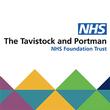Multimedia programmer
Multimedia programmers use specialist software to create multimedia products that combine a range of media, including text, graphics, images, sound, video, animation and virtual reality
You'll usually work to a designer's specification to produce interactive multimedia products that are visually appealing and easy to use.
You may work on content for websites, DVDs, mobile apps, computer games, e-learning materials and interactive animated films, for example. These interactive products are used for a range of purposes such as advertising, entertainment, learning and promotion/publicity.
As job titles and roles aren't standardised in the IT sector, the work of a multimedia programmer may overlap with other roles such as web developer, digital designer, multimedia specialist, games developer, systems developer or software engineer.
Multimedia is often also described as new media, interactive media, digital media and online/internet services. Job titles vary and may include digital designer or graphic and multimedia designer.
Responsibilities
As a multimedia programmer, you'll need to:
- work with the designer and other creative specialists (such as animators, video producers and 3D modellers) to understand the design concept, and advise on how it can be implemented technically
- discuss the operational and financial parameters necessary for the product to be produced on time and to budget
- write efficient computer code or script to make the various features work, ensuring that sound, graphics, animations and timings work as intended and make good use of processing and data storage capacity
- create and link databases to the user interface so that information can be retrieved, stored and processed interactively via the application
- write HTML or similar input and use authoring packages where appropriate to create content and effects
- run tests to identify bugs and fix any problems that arise by rewriting the code or adding new code that works around the problem
- keep stakeholders updated on progress and anything that might hold up the project
- provide technical support to an application once it's running and make further adaptations, patches or rewrites to the code
- research and keep abreast of emerging technologies, in order to deliver the most up-to-date solutions, including learning new programming languages or technologies
- take on other roles, such as design and animation - although this applies mostly to smaller projects and depends on your level of expertise.
Salary
- Junior salaries start at around £18,000 to £21,000.
- With experience and increased responsibility, you can expect to earn in the region of £25,000 to £45,000.
- With greater experience and management responsibilities and/or expertise in niche areas, it may be possible to earn in excess of £50,000.
The title of multimedia programmer can cover multimedia developer, designer and engineer roles, and as a result salaries can differ depending on the actual role.
Salaries also vary depending on the sector and employer, your skills, experience and responsibilities, and location. Salaries are lower during the initial training period.
There are many opportunities for contract and freelance work in the industry. These can pay well but you may have less job security and fewer benefits such as paid leave and a pension.
Income figures are intended as a guide only.
Working hours
You may need to work beyond the standard 9am to 5pm working day, especially when there are deadlines to meet.
There may be opportunities for remote or hybrid working.
What to expect
- The work is office-based, and you'll usually work as part of a multi-disciplinary team with other creative specialists.
- Jobs are quite widely available, but entry-level positions may be more difficult to find. Jobs tend to be in major towns and cities, particularly London and the South East, and are concentrated where there are clusters of other creative industries, such as broadcast media, filmmaking and animation.
- Although more companies are addressing the gender imbalance in the IT sector, women are still underrepresented. This is a recognised issue, and steps are being taken to redress the balance. See Women in Tech and BCSWomen for more information and job vacancies.
- With experience, it's possible to set up your own company.
- There is some client contact, but you won't need to travel much during the working day.
Qualifications
Although this area of work is open to all graduates, a degree/HND in a technical or creative subject may increase your chances. Relevant subjects include:
- animation
- computer science or software engineering
- digital media
- engineering or electronics
- fine or visual art
- game design
- graphic design and illustration
- interactive or multimedia technology or design and animation
- mathematics or physics
- spatial design
- web design
- 3D design or digital art.
It's essential to build up a portfolio of your multimedia projects to demonstrate your technical skills and creativity to employers. Employers are looking for a strong programming background and skills in multimedia applications.
Entry without a degree or HND is difficult due to competition for jobs, although you may be able to get an entry-level role and work your way up by gaining experience and learning new skills. Having a strong portfolio of experience will help. Some employers may stipulate a degree rather than an HND.
A pre-entry postgraduate qualification isn't necessary, although an MSc in multimedia or a related area may be helpful, particularly if your first degree is in a non-related subject.
Search for postgraduate multimedia courses.
Skills
In addition to a mix of technical and creative skills, you will need to have:
- collaboration and team working skills to work effectively in cross-functional teams
- communication skills
- a logical approach to problem solving
- the ability to work well under pressure and to tight deadlines
- self-motivation and the ability to work independently
- project management skills
- organisation and time management skills to manage a complex range of tasks
- attention to detail.
Specific employer requirements vary depending on the sector and the platform being used.
Work experience
You'll need to provide evidence of your skills to prospective employers, so prepare a portfolio with examples of your work.
Many university courses in multimedia and computer sciences offer a placement year in industry, which can be helpful for building up your portfolio, gaining hands-on experience and developing a network of contacts.
Look for relevant vacation work, voluntary work, projects or placements so that you can build up your portfolio. This portfolio could include a range of projects you've worked on, such as interactive web pages, an animated computer game or a presentation incorporating a variety of media.
Find out more about the different kinds of work experience and internships that are available.
Advertisement
Employers
Multimedia programmers are typically employed in specialist multimedia, software and web design companies, as well as other organisations that use or create multimedia products.
You can find work as a multimedia programmer in a range of sectors, including:
- advertising and marketing
- broadcasting
- education
- IT and games
- publishing and media
- telecommunications - particularly mobile phone suppliers and networks.
Many multimedia companies are small and tend to focus on providing specialist services to niche markets. However, some large organisations have in-house website development and/or new media or multimedia departments.
Typical employers include:
- construction developers
- DVD authoring companies
- educational institutions and e-learning suppliers
- facilities houses, offering support services such as post production and special physical effects for the creative industries
- computer games publishers
- independent production companies and broadcasting companies
- interactive design agencies
- interactive museums and visitor attractions
- internet service providers (ISPs) and web hosting services
- IT consultancies
- marketing and advertising agencies.
Look for job vacancies at:
With experience, contracting may be an attractive option. While most job sites cover contractor roles, you can also try sites such as Contractor UK.
Professional development
You will usually need to take responsibility for your own professional development. This means keeping your skills and knowledge up to date in what is a rapidly-changing industry. For example, you'll need to learn new software applications and programming languages, and adapt to new or developing platforms.
You will usually learn on the job with support from more experienced members of the team. You may attend short courses on company specific software and systems and will keep up to date via newsgroups, following websites that showcase the newest ideas, and reading specialist journals. Check out these useful sources of development training:
- BCS (The Chartered Institute for IT) provides professional qualifications and IT-related events, information and guidance.
- Lists of courses, conferences and qualifications in media and multimedia are published at British Film Institute (BFI) and ScreenSkills.
- Further education (FE) and higher education (HE) institutions run a variety of courses, including postgraduate degrees in areas of multimedia.
Career prospects
As you gain experience you may need to move jobs to progress your career. With experience, you could move into middle or senior management roles, such as team leader or production manager.
You could also find work as a project manager, coordinating the input of a group of skilled professionals, with ultimate responsibility for ensuring the project is completed on time and to budget. The role of project manager requires an all-round skillset, covering business, content, design and technical competencies.
You may decide to specialise in a particular multimedia format such as:
- web applications
- mobile technologies
- interactive television
- games development.
As the multimedia industry evolves, digital security and online services are becoming major growth areas, with the opportunity for skilled professionals to work with larger and more diverse audiences.
Alternative careers
Related jobs and courses




graduate scheme
Technology Graduate - North West
- Grayce (5 other jobs)
- £22,001-£24,500
- Various locations

